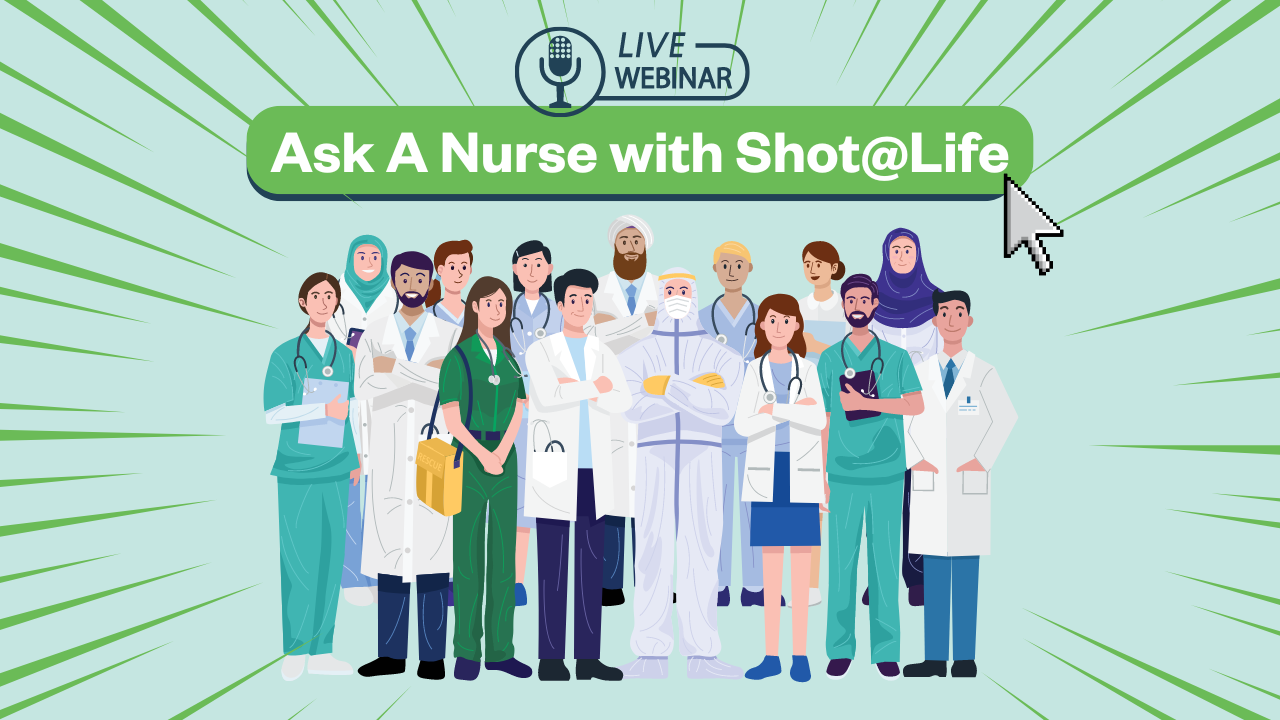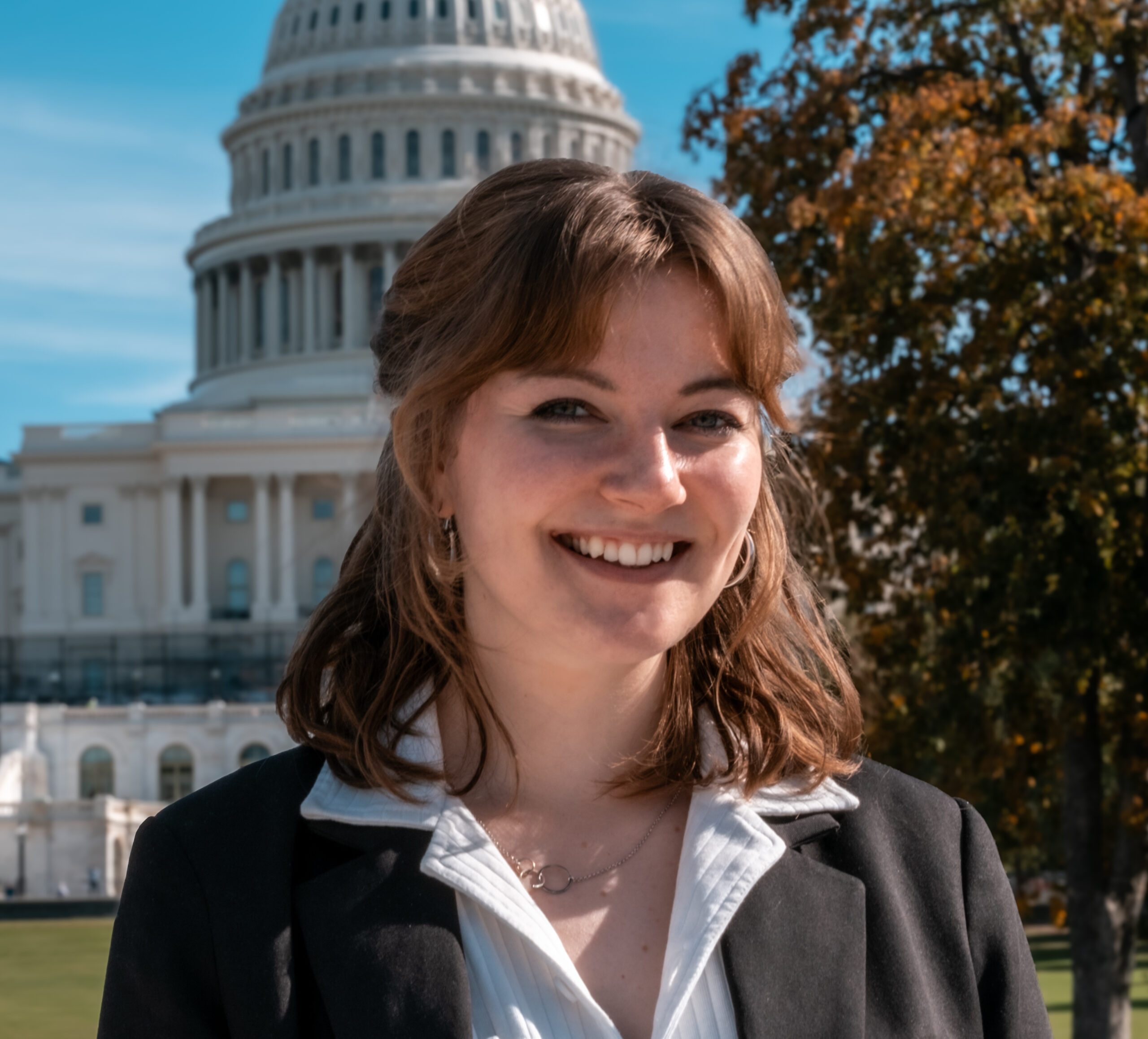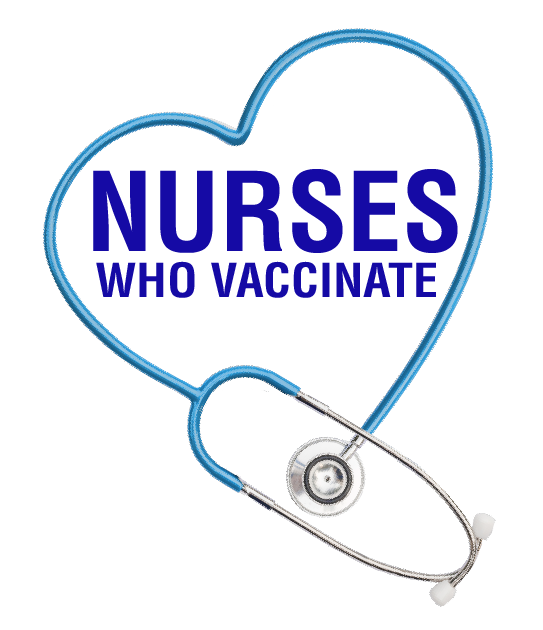‘Ask A Nurse’ Champion Webinar Recap
Dr. Mary Koslap-Petraco and Melody Butler, two healthcare professionals and vaccine advocates, shared their experience and tips for addressing vaccine hesitancy in Shot@Life's 'Ask A Nurse' Champion Webinar.

Shot@Life’s work revolves around global immunization and ensuring that everyone, everywhere has access to lifesaving vaccines. While Shot@Life Champions know to stay focused on the global picture and issues of access in their advocacy, it is also helpful to be able to discuss domestic immunization in their communities. This is particularly true of Champions who are also healthcare workers dealing with parents or patients who might be vaccine-hesitant.
With this in mind, Shot@Life hosted an ‘Ask A Nurse’ webinar this week to equip trained Shot@Life Champions with tools for productive conversations about the need for immunization and dispelling misconceptions about vaccines. These techniques apply in clinical and non-clinical settings, such as conversations with friends, family, and communities.
Dr. Mary Koslap-Petraco, a pediatric nurse practitioner who has served on the Suffolk Country Department of Health Services for thirty years, and Melody Butler, a pediatric nurse and executive director of the nonprofit Nurses who Vaccinate, were the two expert speakers for this webinar.
A range of topics were covered, from positive communication techniques to dispelling specific vaccine myths to the effect of the COVID-19 pandemic on vaccine uptake. Some key takeaways from Monday night’s discussion are:
- When it comes to positive communication techniques—particularly in the context of speaking with a vaccine-hesitant individual—acknowledging and validating a person’s fears is an important first step. From there, Melody and Mary both recommend asking “do I have your permission to tell you what I know?” to establish trust and rapport before sharing accurate information about vaccines. For a more structured approach to the conversation, Melody outlined the ‘CASE’ approach—read more here.*
- Addressing vaccine hesitancy with a patient or community member is “an ongoing discussion,” but Melody explains that she takes it as a privilege if anyone feels comfortable enough coming to her for information.
- Conversations about vaccines—and, in turn, misinformation—can happen anywhere, from a doctor’s office to a congressional meeting to the grocery store. Mary told the audience, “I do a lot of vaccine conversations in my church parking lot.”
- Regardless of whether they are speaking to their Member of Congress or a patient, both Mary and Melody say that it is important to act as a resource for evidence-based research on vaccines, up-to-date information, and more. They also both emphasize the importance of sharing personal anecdotes about vaccines as mothers themselves.
The number one achievement in the 21st century is the invention of vaccines. I like to walk through old cemeteries… so many of those little tombstones list deaths by vaccine-preventable diseases. It reminds me of what I do and why I do it.
Dr. Mary Koslap-Petraco
- The COVID-19 pandemic unfortunately politicized vaccines. Mary says that many of her public health colleagues thought the pandemic would be the best thing ever for vaccine uptake, but it was the opposite—due to the politicization of vaccines, alongside children missing routine immunizations during lockdowns, immunization coverage dropped, with consequences we are seeing today.
- Both nurses wrapped up the conversation with one key point: be kind and listen. Open the door to future conversation and act as a resource for people. Remember why you are a vaccine advocate, and remain passionate, patient, and persistent when combatting any vaccine misinformation.
99.9% of flu deaths were unvaccinated individuals—being on the couch with a fever for a few days after getting vaccinated is far better than the alternative.
Melody Butler
Please see the video below for a full recording of the Q&A-style discussion with Mary and Melody, alongside a list of resources for more information on discussing vaccines and addressing vaccine hesitancy.
Additional Resources:
- * Making the CASE for Vaccines: A New Model for Talking to Parents About Vaccines


